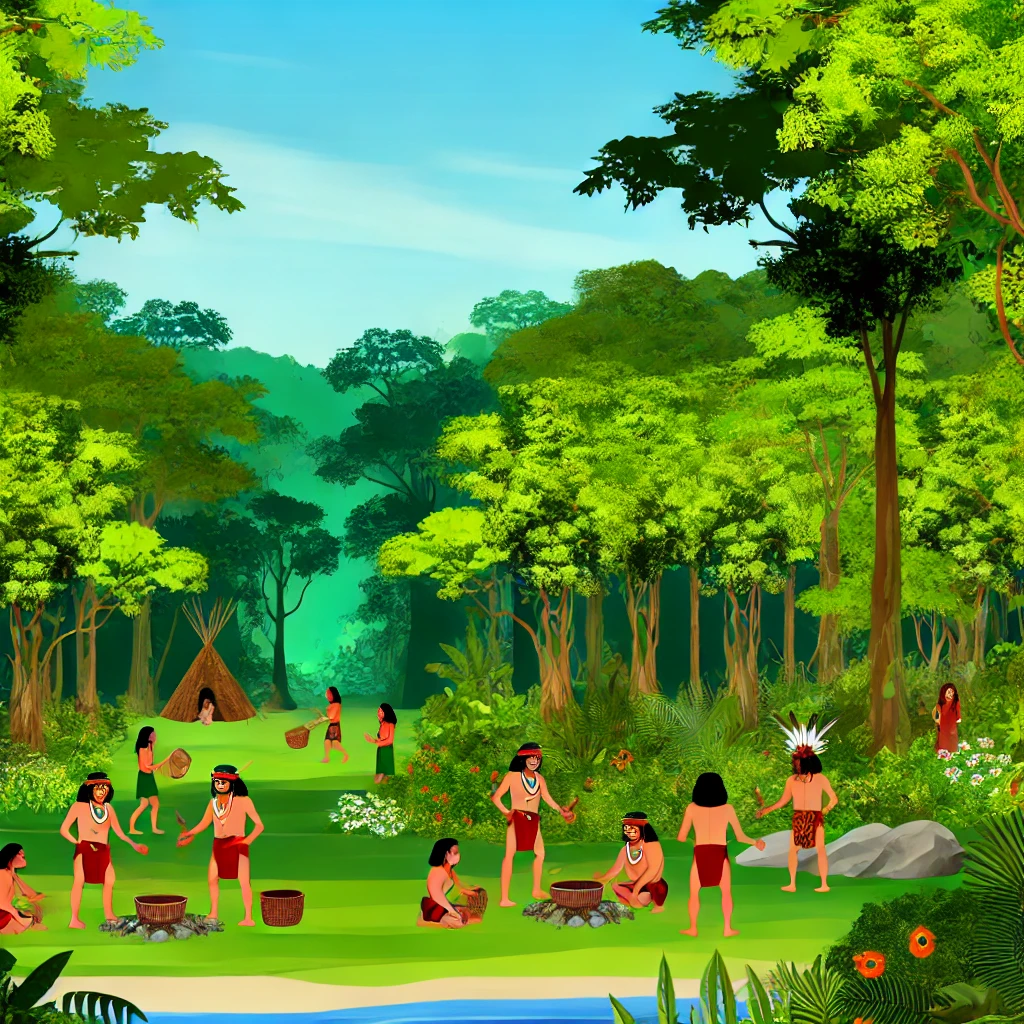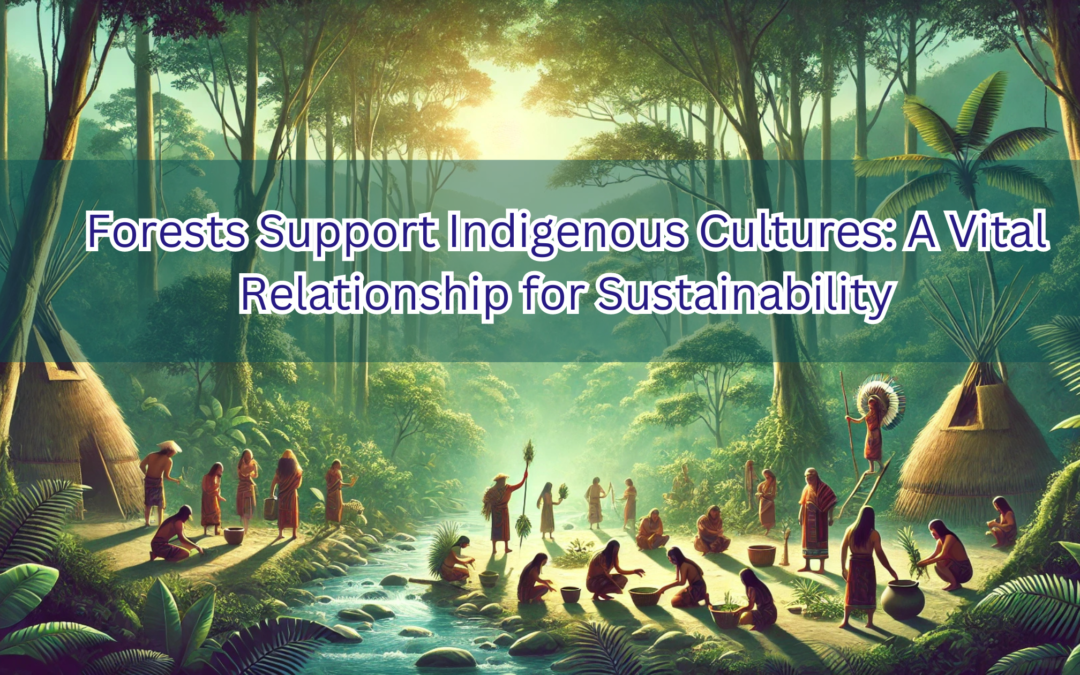Forests are much more than ecological systems; they are the backbone of many indigenous cultures worldwide. For centuries, indigenous communities have coexisted with forests, relying on them not only for basic needs like food and shelter but also for spiritual practices, traditions, and livelihoods. The preservation of forests is crucial, not just for environmental reasons but also for safeguarding the rich cultural heritage of indigenous peoples.
In this article, we’ll explore how forests support indigenous cultures and why it’s essential to protect these vital ecosystems.
The Spiritual and Cultural Relevance of Forests
To many indigenous cultures, forests are sacred. These are not just landscapes filled with trees and wildlife but living entities that host spirits, ancestors, and deities. Take, for example, the tribes of the Amazon rainforest, where the forest is viewed as a holy place where ancestors’ spirits reside. This belief strengthens their connection to the land and shapes their cultural identity.
Rituals, festivals, and spiritual ceremonies often take place in forests, serving as communal gatherings that foster solidarity within the community. Without forests, these traditions would lose their sacred space, threatening the survival of the culture itself.
Traditional Knowledge and Subsistence
Forests support indigenous cultures by providing resources that are essential for survival. From medicinal plants to food sources, indigenous peoples have developed a vast knowledge of forest ecosystems, often referred to as Traditional Ecological Knowledge (TEK). This knowledge is passed down through generations and includes sustainable harvesting methods, plant-based medicine, and animal behaviors.
For instance, many indigenous tribes in North America and Southeast Asia practice rotational farming, allowing forests to regenerate and ensuring that they remain productive over the long term. They also understand the importance of biodiversity and maintain it through sustainable hunting and gathering practices. These traditional practices demonstrate that indigenous peoples are not just forest dwellers but stewards of the land.
Economic Livelihoods and Forest Resources
Forests don’t just support indigenous cultures spiritually and nutritionally—they are also crucial for economic survival. Indigenous communities often rely on forest resources to earn a living. Hunting, fishing, gathering fruits, and creating artisanal goods from forest materials help sustain these communities.
More recently, ecotourism has emerged as another way for Indigenous people to generate income while sharing their knowledge of forest ecosystems with visitors. This promotes cross-cultural understanding and supports local economies. By preserving forests, we also preserve these economic opportunities, ensuring that indigenous communities continue to thrive.

Conservation and Stewardship: Indigenous Knowledge at Work
Perhaps one of the most compelling ways in which forests support indigenous cultures is through conservation. Studies have shown that forests managed by indigenous communities experience lower rates of deforestation and higher biodiversity. Why? Indigenous peoples have been practicing sustainable land management for centuries.
Techniques such as controlled burning, the preservation of sacred groves, and rotational farming help maintain the health of forest ecosystems. These methods not only ensure the availability of resources for future generations but also protect global biodiversity. Protecting indigenous lands and their rights to manage forests is therefore crucial for environmental sustainability. The World Resources Institute supports these efforts by showcasing how indigenous land rights are key to preventing deforestation.
Challenges and the Need for Preservation
Despite the clear ways in which forests support indigenous cultures, these communities are facing increasing threats. Deforestation, land grabbing, and climate change are eroding both the natural landscapes and the cultural practices of indigenous peoples. Preserving these cultural landscapes requires a global commitment to recognizing and protecting indigenous land rights and integrating TEK into modern forest management practices.
Take Action: Support Indigenous Forest Guardianship for a Sustainable Future
The relationship between forests and indigenous cultures is symbiotic and vital to the health of both the planet and its people. To ensure a sustainable future for everyone, we must recognize and support the role that Indigenous communities play in forest conservation.
Let’s work together to raise awareness and support efforts that protect indigenous lands and their right to manage forests. By doing so, we are not only preserving the environment but also safeguarding rich cultural traditions that have sustained indigenous peoples for generations.
Join us in this mission! Visit the EAT Community today to learn more about how you can contribute to preserving forests and supporting indigenous cultures. Together, we can make a difference for future generations.
Related Articles and Resources:
- Protecting rainforests and our climate in partnership with Indigenous peoples since 1988
- Sacred Land – Indigenous worldviews, values, and sacred places strengthen the earth’s biological and cultural diversity
- The International Ecotourism Society
- World Resources Institute | Making Big Ideas Happen
- How Regenerative Agriculture Contributes to Sustainable Food Systems
- Embrace the Future of Farming: The Power of Regenerative Agroecology
- Understanding Ecological Forestry Management Framework
- Deforestation


Recent Comments